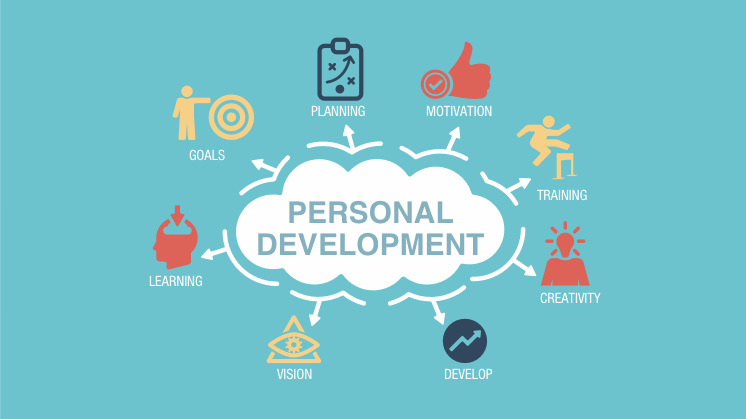The Pros and Cons of Business Ownership
Owning a business is a dream that many people aspire to achieve. It represents independence, entrepreneurship, and the potential for financial success. However, business ownership is not without its challenges and risks.
In this blog post, we will explore the pros and cons of business ownership to help you make an informed decision if you’re considering taking the entrepreneurial plunge.

Pros of Business Ownership
Independence and Control: One of the most significant advantages of owning a business is the autonomy it provides. Business owners have the freedom to make decisions about every aspect of their company, from its mission and values to its day-to-day operations, without answering to superiors or adhering to corporate policies. This control allows entrepreneurs to shape their businesses in alignment with their vision and values.
Potential for High Profits: Business ownership offers the potential for significant financial rewards. Successful businesses can generate substantial profits and wealth for their owners. Entrepreneurs have the opportunity to build assets, accumulate wealth, and achieve financial security. Unlike traditional employment, owning a business provides the opportunity for unlimited earning potential. As the owner, you have the ability to determine your prices, set revenue goals, and ultimately drive profits.
Creativity and Innovation: Business owners have the creative freedom to develop new products, services, and solutions to address market needs that align with their vision. Entrepreneurship encourages innovation and allows individuals to bring their unique ideas to life. This creative freedom can be incredibly fulfilling and personally rewarding.
Tax Benefits: Business owners often enjoy tax advantages not available to employees. Deductions, credits, and write-offs can reduce the overall tax burden, potentially increasing the net income available to the owner.
Flexible Work Schedule/Work-Life Balance: Many entrepreneurs appreciate the flexibility that comes with business ownership. While starting and running a business requires hard work and dedication, it can often provide a more flexible work schedule than a traditional 9-to-5 job. As a business owner, you have the ability to set your own schedule and create your work-life balance. While starting a business often requires considerable time and effort in the initial stages, once established, you can design a lifestyle that suits your needs and priorities.
Personal Growth: Owning a business can be a tremendous personal growth opportunity. It challenges individuals to develop leadership, problem-solving, and decision-making skills. The learning curve is steep but rewarding.

Legacy Building: Business owners can create a lasting legacy by building a successful company that can be passed down to future generations or sold for a substantial profit. This can provide financial security for heirs and contribute to the family’s prosperity.
Cons of Business Ownership
Financial Risk: Perhaps the most significant drawback of business ownership is the financial risk. Starting and running a business often requires a substantial financial investment, and success is not guaranteed. Entrepreneurs risk losing their initial capital and may need to secure loans or investments to keep the business afloat.
Extended Hours and Stress: Business owners frequently work long hours, especially in the early stages of their ventures. The responsibility for the company’s success can lead to high stress levels and burnout. Balancing work and personal life can be challenging.
Uncertainty and Volatility: The business world is inherently uncertain and subject to market fluctuations. Economic downturns, changing consumer preferences, and industry disruptions can impact the stability and profitability of a business. Unlike traditional employment, business ownership lacks the stability and security of a regular paycheck. Entrepreneurship is inherently unpredictable, and your income can fluctuate monthly. Additionally, unexpected challenges, such as economic downturns or industry disruptions, can significantly impact your business’s viability.
Limited Resources and Support: Starting a business often means operating with limited resources, especially in the initial stages. Securing funding, finding suitable premises, and hiring skilled employees may pose challenges. Additionally, as a small business owner, you may not have access to the same level of support and benefits that larger corporations enjoy.
Operational Responsibilities: Business owners must oversee various operational aspects of their company, including finances, marketing, human resources, and logistics. Managing these responsibilities can be overwhelming, especially for small business owners with limited resources.
Legal and Regulatory Compliance: Running a business involves navigating a complex web of legal and regulatory requirements. Failing to comply with laws and regulations can lead to fines, legal issues, and reputational damage.
Financial Strain and Debt: Many entrepreneurs take on significant debt to start or expand their businesses. This debt can create financial strain and limit personal financial freedom until it is repaid. Starting a business involves financial risk. There is no guarantee of success, and many businesses fail in their early stages. As a business owner, you may need to invest personal savings, take out loans, or seek investment to fund your venture. The potential for financial loss is a significant risk associated with business ownership.

Limited Job Security: Business owners do not have the same job security as employees. If the business faces financial difficulties or market challenges, the owner may need to make difficult decisions, including laying off employees or even closing the business.
High-Stress Levels: The demands and pressures of business ownership can lead to high stress levels. Handling the day-to-day operations, decision-making, financial management, and the weight of responsibility can take a toll on your mental and physical well-being. Managing stress and finding a healthy work-life balance are essential for long-term success.
"Although starting a business requires great sacrifice, it can also come with great rewards." -Business News Daily "The Pros and Cons of Being a Small Business Owner"
In summary, business ownership offers advantages and disadvantages that aspiring entrepreneurs must consider carefully. The decision to start or purchase a business should be based on individual preferences, risk tolerance, and long-term goals.
While the potential for financial success, creative freedom, and personal growth can be compelling, the financial risk, long hours, and operational challenges can be daunting. Prospective business owners need to conduct thorough research, create a solid business plan, and seek guidance from experienced mentors or advisors.
Ultimately, business ownership is not for everyone, and there is no one-size-fits-all answer. Some individuals thrive as entrepreneurs, while others may find fulfillment and security in traditional employment. Whichever path is chosen, it should align with personal values, interests, and aspirations. Success in business ownership often requires determination, resilience, and a willingness to adapt to changing circumstances, but for those who succeed, the rewards can be substantial.
___
Click here to schedule a casual call with Telanda
“Entrepreneur vs. Employee” Blog Post
Visit the website | Follow me on LinkedIn
#thefranchiseeducator #franchise #franchising #franchiseownership #franchiseopportunities #business #businessownership #businessopportunities #thefranchiseeducatorblog #career #success #beyourownboss #entrepreneur





